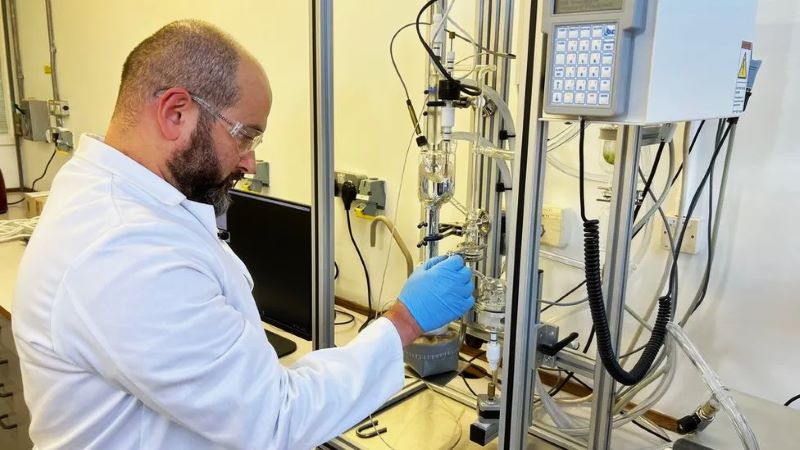UK company develops jet fuel from human waste
A company based in the United Kingdom, Firefly Green Fuels, has devised a unique approach to generate Sustainable Aviation Fuel (SAF) using human waste.
According to reports, independent tests carried out by regulators have validated the fuel’s quality, which is nearly indistinguishable from conventional kerosene that is used worldwide to power commercial airplanes.
James Hygate, the Chief Executive Officer (CEO) of Firefly Green Fuels, told the BBC that the company wanted to find a low-cost feedstock that was highly abundant, remarking that human waste very much fit the bill.
The development of the fuel was done at Cranfield University, where the company and researchers concluded that the human waste-derived SAF has 90% lower emissions than standard jet fuel.
Mr Hygate, who has been developing low-carbon fuels in Gloucestershire for 20 years, said although the new fuel was chemically just like fossil-based kerosene, it “has no fossil carbon, it’s a fossil-free fuel.”
Hygate noted that while energy would have to be used while producing the fuel, “but when looking at the fuel’s life cycle, a 90% saving is mind-blowing, so yes, we have to use energy but it is much lower compared to the production of fossil fuels.”
Dr Lima, who is also a research director at Firefly Green Fuels, said: “What we are producing here is a fuel which is net zero.”
Also Read: Environmentalist calls for adoption of renewable energy

The bio-kerosene is now being tested independently at the DLR Institute of Combustion Technology at the German Aerospace Center, working with Washington State University.
Further future testing will also be carried out by the UK SAF (Sustainable Aviation Fuels) clearing House, based at the University of Sheffield. The first results have confirmed the fuel has a near-identical chemical composition to A1 fossil jet fuel.
The UK Department of Transport has awarded the team a £2 million research grant.
Governmental priority
The UK government, namely the Department for Transport (DfT), launched the Advanced Fuels Fund (AFF) in July 2022. At the time, the fund included a total of £135 million ($172.2 million) in grant funding for various projects supporting the country’s ambitions to develop advanced fuel projects until March 31, 2025.
In the latest round of funding, the DfT provided £53 million ($67.6 million) in funds to various projects, which the DfT hoped would provide up to 10,000 “green” jobs in different parts of the country.
The round’s winners included a converted sawmill and forestry waste demo plant, as well as a commercial plant that uses Power-to-Liquid (PtL) to convert CO2 and green hydrogen into jet fuel. The two projects could produce around 70,000 tonnes of SAF annually.


Comments are closed.